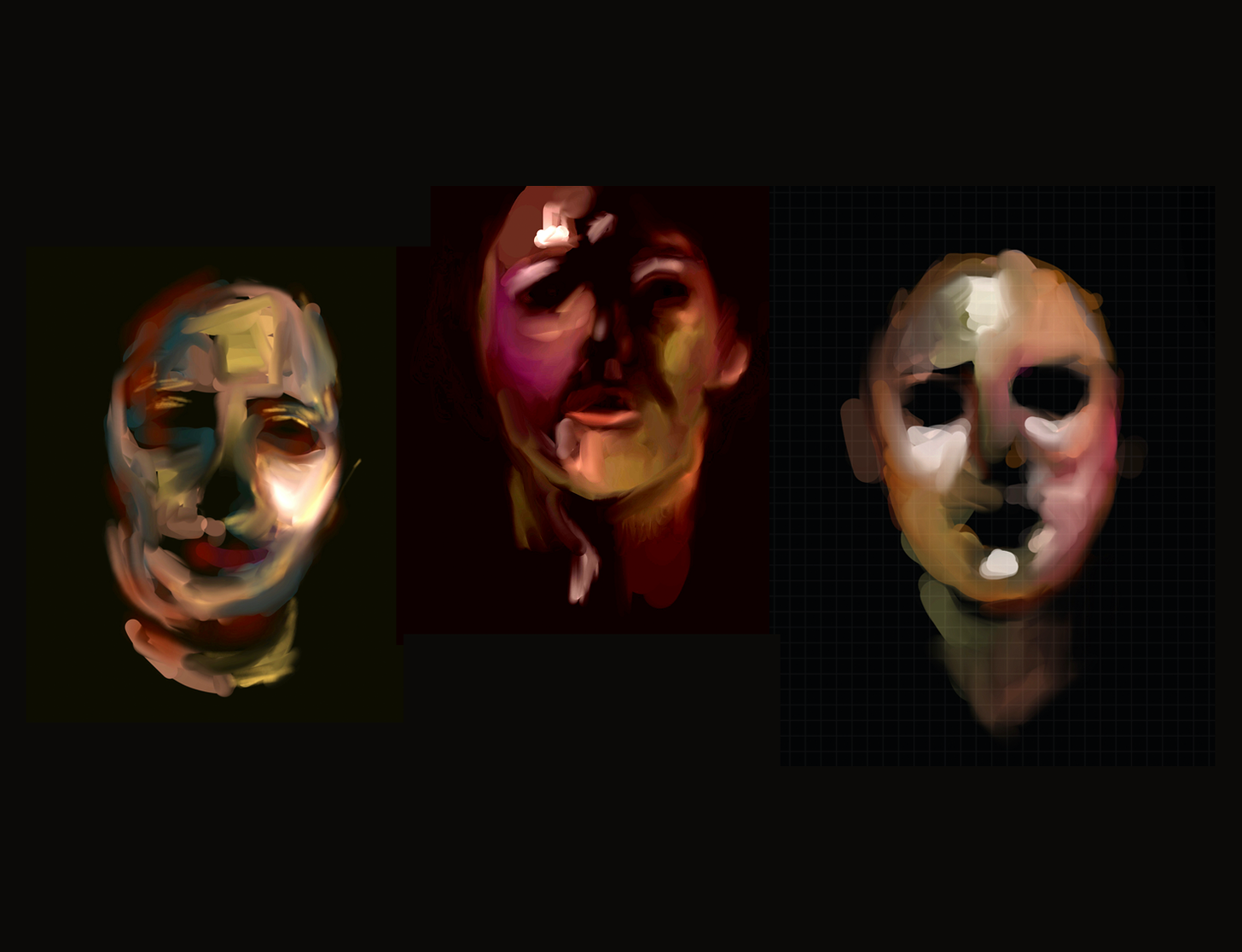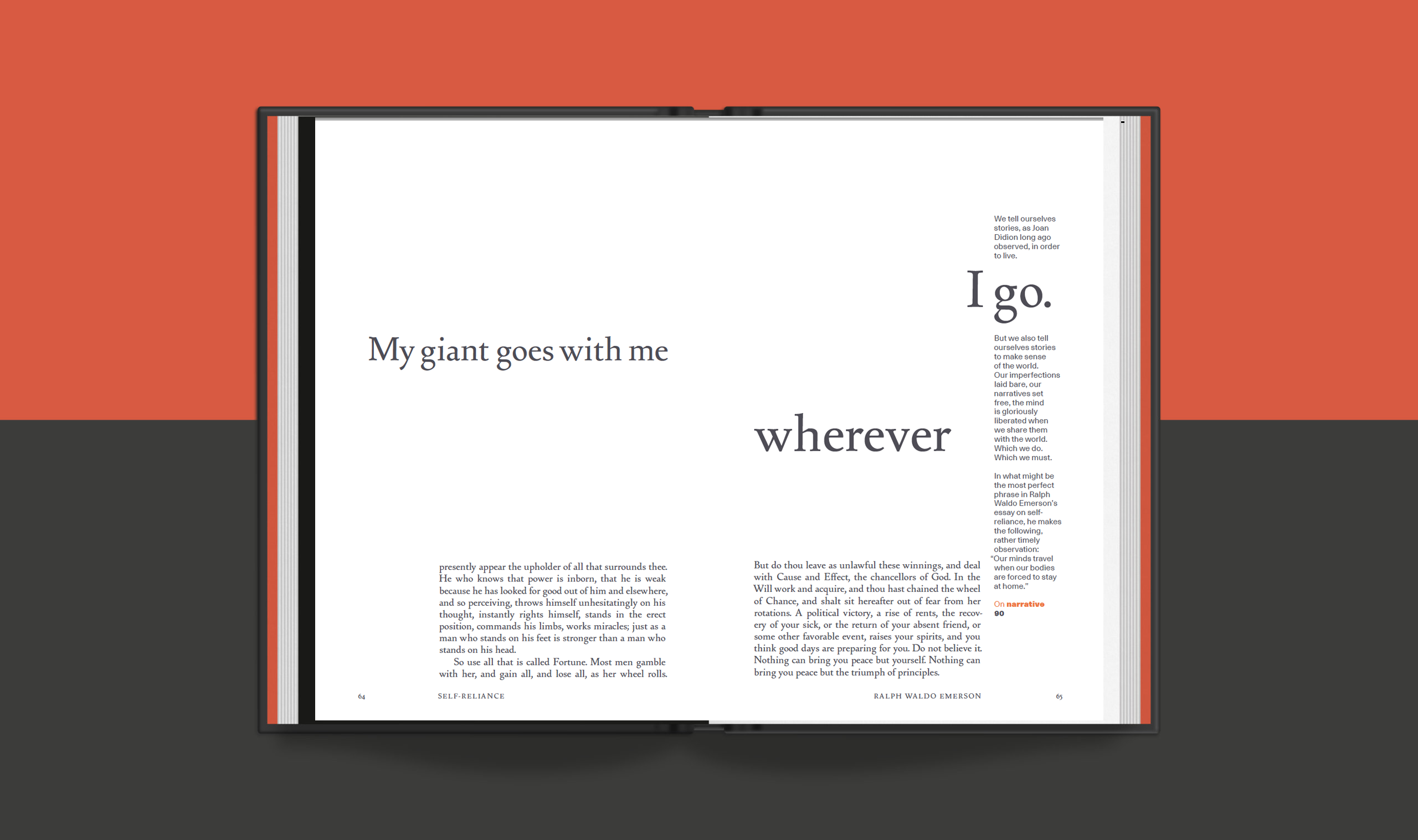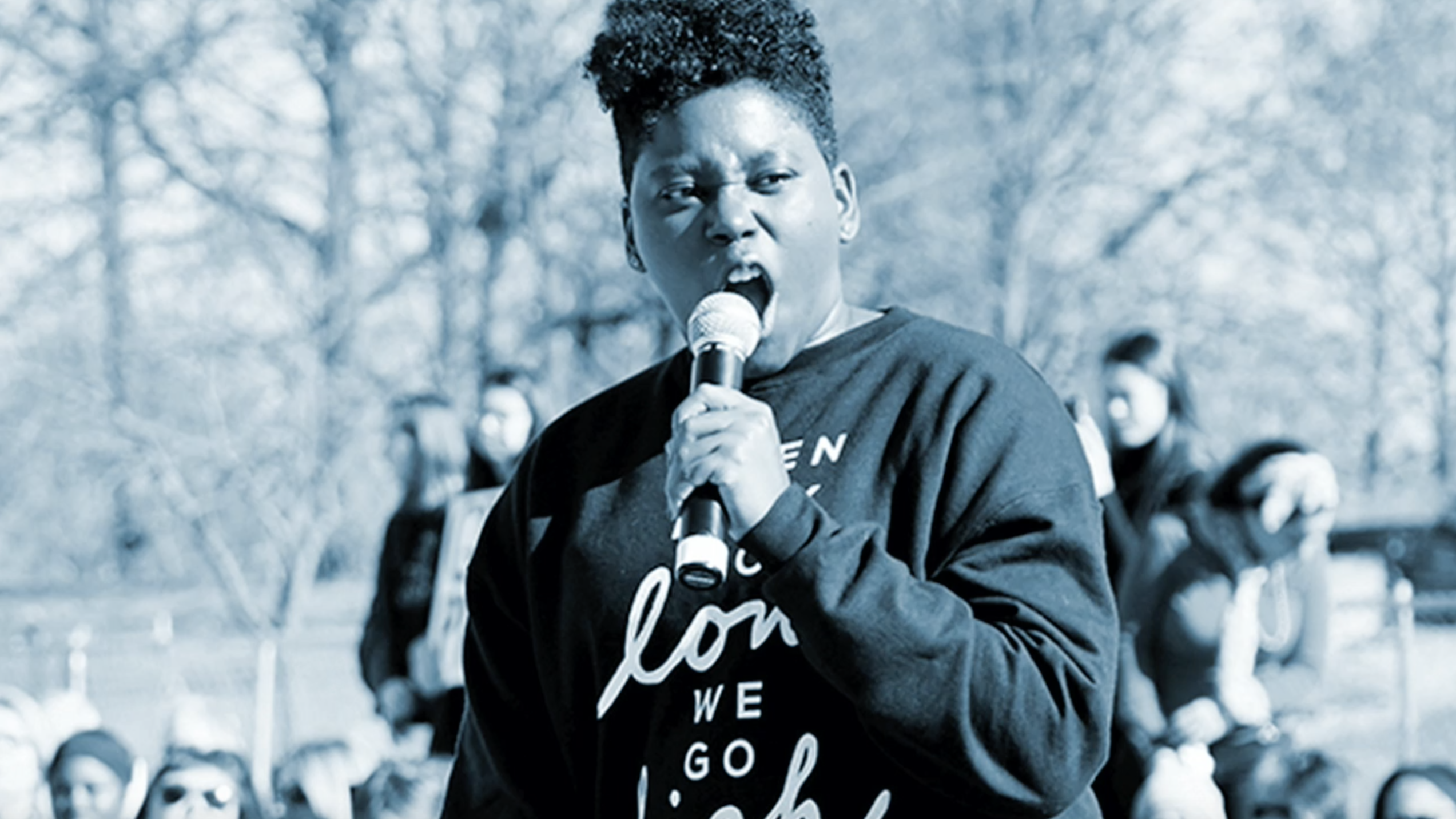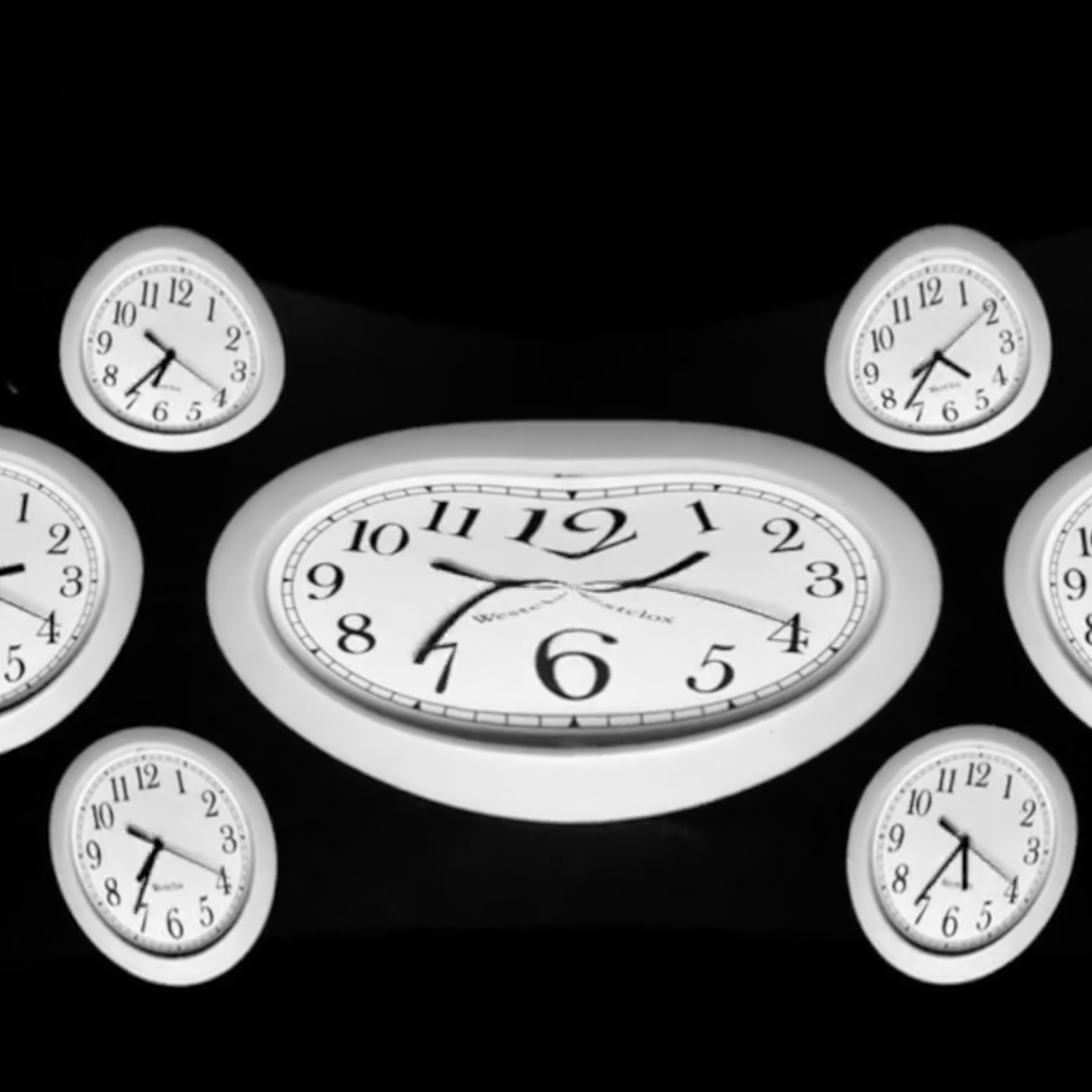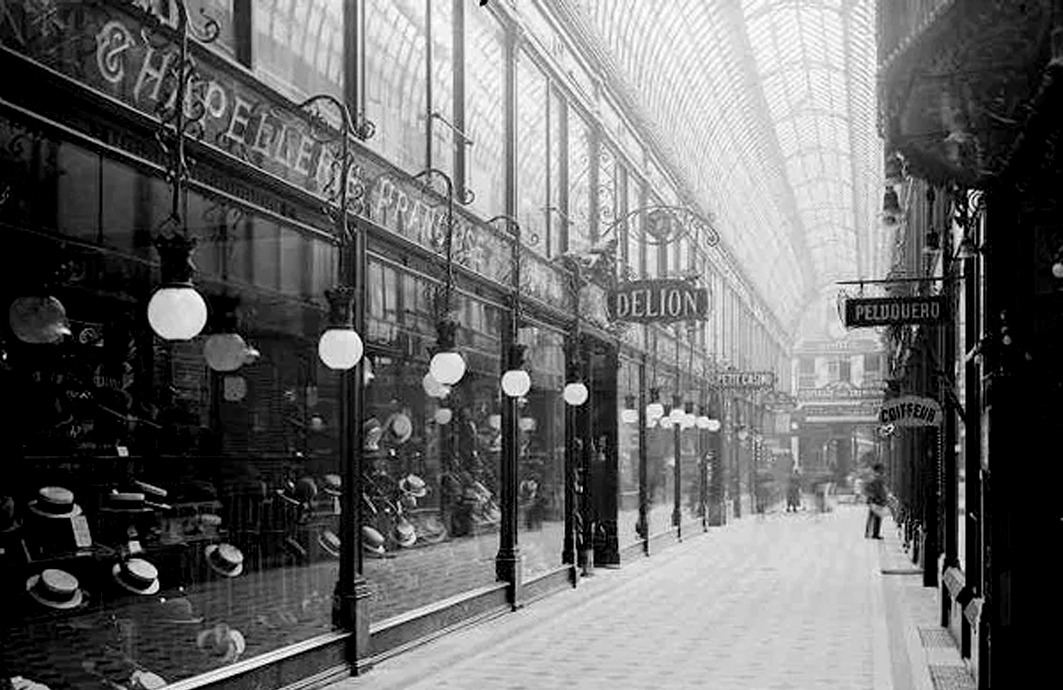
Jessica Helfand|The Self-Reliance Project
April 8, 2020
Surrendering
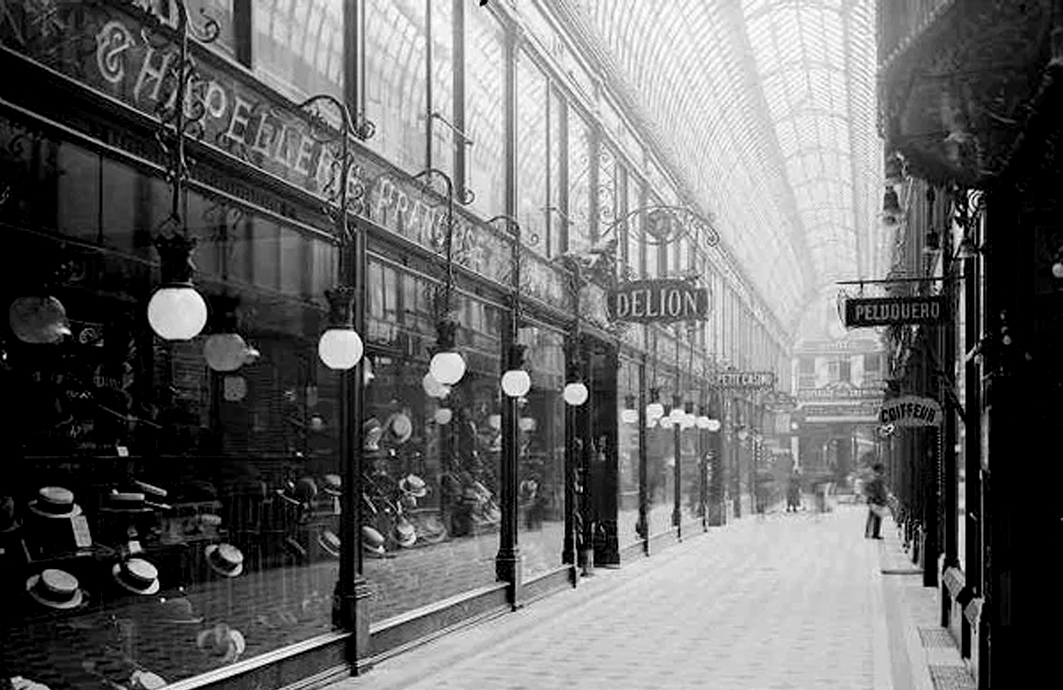
Passage Jouffroy, Montmartre, Paris, about 1915. (Photographer unknown.)
Disasters are ruptures between what was and what can no longer be. They rob us of innocence. They rid us of civility. (They remind us of death.) Panic begets panic, the world gets smaller, and the forcefield of the mind goes into vigilant overdrive. We feel vulnerable, disoriented, and lost.
Feeling lost, however, has its benefits.
Walter Benjamin, the German essayist and philosopher, believed that to really know a city, you needed to get lost in it. He believed in serendipity and spontaneity, in the power of the optical unconscious, and in the kind of spirited individualism that Emerson would have applauded. (The almost comically melancholic Benjamin once wrote that solitude was the only fit state of man.) His last work—a robust, unfinished study on the arcades of Paris—was a celebration of the surreal, a liberation from convention, and a prescient commentary on the modern urban condition. The rise of production. The surge of consumerism. Social entropy, visual ambiguity, and cultural dissonance. His arcades were labyrinths of wonder, perceptual loops that generated more loops, like a Piranesi etching or a Pirandello play.
Benjamin’s notion of the street connoisseur, or flâneur (a notion he attributed to the poet Charles Baudelaire) was a lone figure armed with neither schedule nor map, finding meaning and delight, instead, in their absence. What possible lesson could that teach us now, all of us held hostage in the itinerary-deprived world of extended quarantine? That tourism is not unique to the urban fabric? That wandering is a state of mind? That there might be value in losing yourself?
Yes to all.
In her own reading of Benjamin, Rebecca Solnit refers to this kind of loss as ‘voluptuous surrender’. Lost in your arms, lost to the world, utterly immersed in what is present so that its surroundings fade away, she writes. To be lost is to be fully present, and to be fully present is to be capable of being in uncertainty and mystery.
Surrender is the art of uncertainty: it’s the practice of giving in, not giving up. And while rupture may be a breaking point, it’s not a life sentence. (This is where the magic of the optical unconscious meets the mystery of the human imagination: consider it your very own creative stimulus package.) To lose yourself in what Emerson called the ‘idlest reverie’ is to submit to that surrender, to immerse yourself in this ambiguous present, as hauntingly beautiful as those Parisian arcades, just as broken, just as human—and just as surreal.
The Self-Reliance Project is a daily essay about what it means to be a maker during a pandemic. Sign up to get it delivered to your inbox here.
Observed
View all
Observed
By Jessica Helfand
Recent Posts
“Dear mother, I made us a seat”: a Mother’s Day tribute to the women of Iran A quieter place: Sound designer Eddie Gandelman on composing a future that allows us to hear ourselves think It’s Not Easy Bein’ Green: ‘Wicked’ spells for struggle and solidarity Making Space: Jon M. Chu on Designing Your Own Path
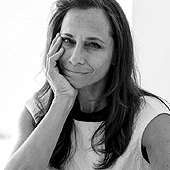 Jessica Helfand, a founding editor of Design Observer, is an award-winning graphic designer and writer and a former contributing editor and columnist for Print, Communications Arts and Eye magazines. A member of the Alliance Graphique Internationale and a recent laureate of the Art Director’s Hall of Fame, Helfand received her B.A. and her M.F.A. from Yale University where she has taught since 1994.
Jessica Helfand, a founding editor of Design Observer, is an award-winning graphic designer and writer and a former contributing editor and columnist for Print, Communications Arts and Eye magazines. A member of the Alliance Graphique Internationale and a recent laureate of the Art Director’s Hall of Fame, Helfand received her B.A. and her M.F.A. from Yale University where she has taught since 1994.
